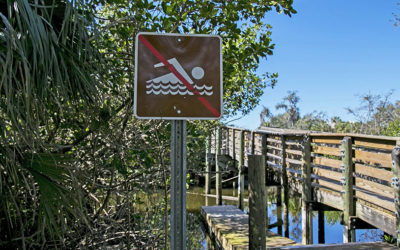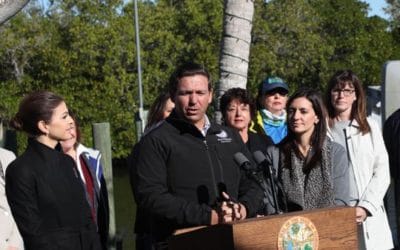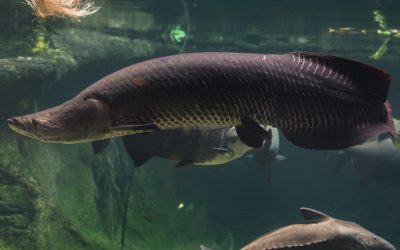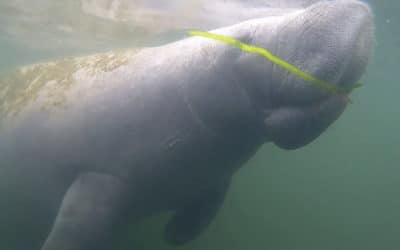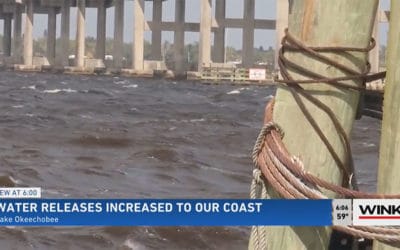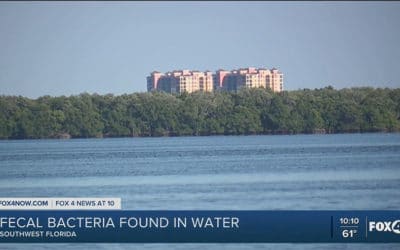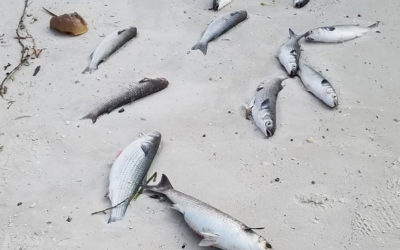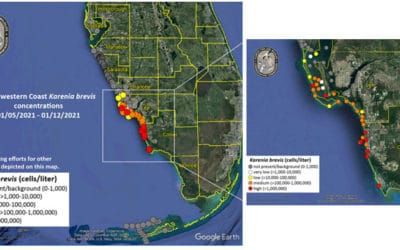Calusa Waterkeeper
In the News
FDEP Hits Fort Myers with $500,000 in Civil Penalties for Sewer Plant Leaks
Fort Myers is facing more than $500,000 in civil penalties for repeated discharge of untreated wastewater into waterways, including Billy’s Creek and the Caloosahatchee River, and for other violations involving the city’s wastewater system.
Gov. DeSantis Pushing $100M for Septic Tank Conversion Projects to Improve Water Quality
Septic tank leakage is one of the top causes of damaging nutrients flowing to Florida’s ailing waterways, but the state is looking to cut down on that pollution through a $100 million program that’s part of Gov. Ron DeSantis’ proposed budget.
Amazonian River Monster Discovered in the Caloosahatchee River
Over the weekend, a woman walking through Cape Coral’s Jaycee Park came across an enormous dead fish that puzzled her. After posting a photo to social media, the fish was quickly identified as an arapaima: a 5 and a half foot long Amazon River predator.
Words from the Waterkeeper, Episode 24
Calusa Waterkeeper, John Cassani updates us on manatee mortality rates and how these local creatures are being impacted in our area. Manatee mortality for January 2021 is 176 – a rate of 6.1 per day. Compared this to the total mortality for January 2020 which was 58, a rate of 1.9 per day.
Lake O Releases Being Sent to Caloosahatchee to Avoid Wet Season Problems
More water from Lake Okeechobee is scheduled to be sent to the Caloosahatchee River, as the U.S. Army Corps of Engineers plans to increase water releases now to potentially avoid the need for too many releases during the wet season. It’s a decision a water expert in Southwest Florida calls a gamble.
Group Calls for More Signs to Indicate What’s in Local Waterways
While we often think of beaches when we think of our state, one organization says more needs to be done so you know what could be lingering in some of our other waterways. “There should be signs there warning of that.” John Cassani of Calusa Waterkeeper says more signage should be posted near water with high levels of fecal indicating bacteria.
What Happened to 1,000 Gallons of Spilled Wastewater in North Fort Myers?
A car crash spilled 1,000 gallons of wastewater at the gated Magnolia Landing community Wednesday night in North Fort Myers, but the area has been cleaned and disinfected, officials say. Records of the spill from the Florida Department of Environmental Protection show the release happened at 5 p.m. and was over by 7.
Billy’s Creek Enterococci Sampling Results, January 2021
Calusa Waterkeeper sampling results for enterococci bacteria show levels well above the 70 MPN threshold which represents for poor conditions that could cause FDOH to close a coastal beach. Many of these waters are verified impaired for fecal bacteria yet have no signage warning recreators of potential health risk.
Red Tide Continues to Irritate Southwest Florida Beaches
Dead fish are washing up along southwest Florida beaches bringing up major concerns for scientists, residents, and tourists along the Gulf Coast waters. “We’re seeing massive fish mortality right now. And I got a bad feeling marine mammals and sea turtles are not far behind,” said John Cassani, of Calusa Waterkeeper.
Words from the Waterkeeper, Episode 23
This week, John discusses the red tide that we are still encountering in the Gulf and how it is impacting our wildlife and beaches. If you encounter a fish kill or hurt, stranded or dying wildlife, please report it to FWC.
Bling Bags Welcome Visiting Boaters to Southwest Florida
When boat owners from across the country make a seasonal visit to Lee County docks, they’ll receive bling bags. The idea comes from America’s Boating Club of Fort Myers, which has been around for 67 years. The organization teaches boating classes, does vessel safety checks and engages in community service projects like this.
Red Tide Continues from Captiva South to Marco
FWC red tide maps are now showing almost 45 nautical miles of Gulf coast from Captiva Island south to Marco Island in the grip of an invasive force of single-celled terrorists. They resemble tiny four-chambered hearts with squiggly tails: the dreaded Karenia brevis.

























